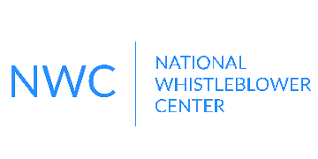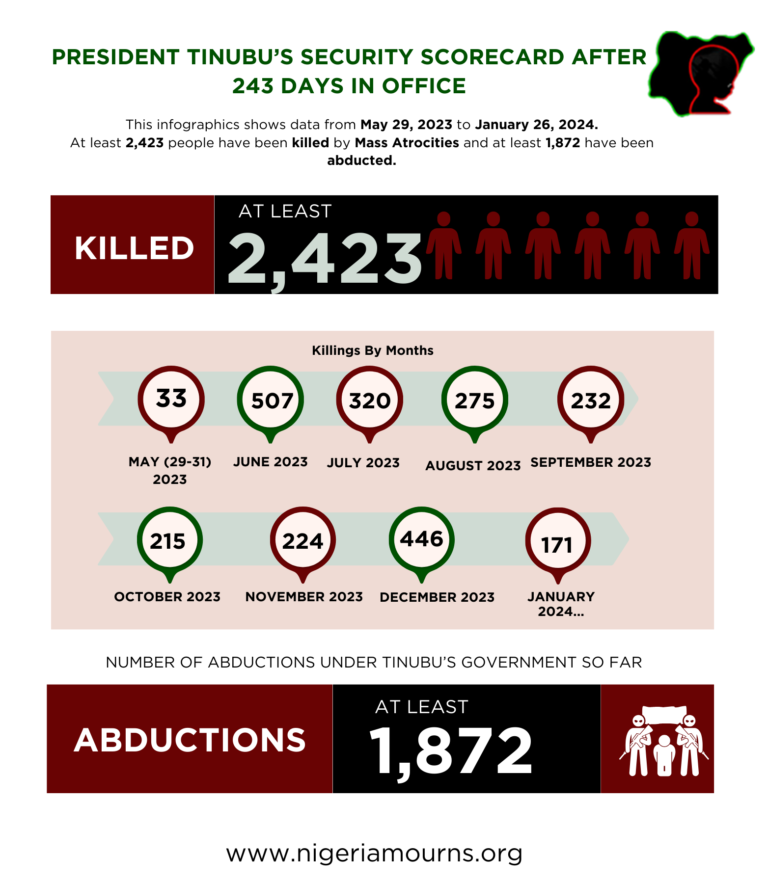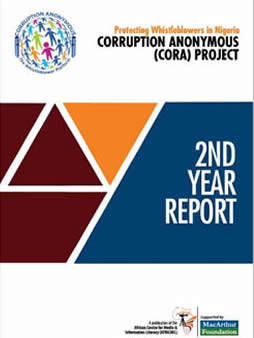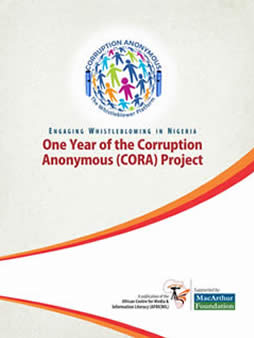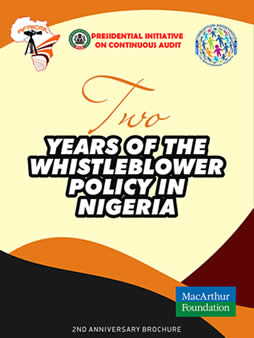The African Centre for Media and Information Literacy (AFRICMIL) has called for collaboration with the House of Representatives to ensure the success of the Whistleblower policy of the Federal Government of Nigeria.
The Coordinator of AFRICMIL, Chido Onumah, made the appeal when he led a delegation on a courtesy call on the Chairman, Committee on Financial Crimes, Honourable Kayode Oladele, in Abuja.
Onumah noted that AFRICMIL had recently launched CORRUPTION ANONYMOUS (CORA) to support the federal government’s Whistle-blower policy, and emphasized the need for government to be more proactive towards safeguarding the wellbeing of the Whistle-Blower.
The project, which is supported by The John D. and Catherine T. MacArthur Foundation, is designed to mobilise active involvement of citizens in the fight against corruption through whistle-blowing.
According to him, Corruption Anonymous would be focused on three key areas which include creating awareness, maintaining the sanctity of the whistle-blower policy and, most importantly, ensuring the safety and protection of whistleblowers.
He expressed concern over the incessant victimization of whistleblowers and stressed the need for the federal government to help protect individuals who have chosen to expose corruption from being unduly sanctioned.
Said Onumah, “This is more so concerning our civil servants who are afraid to make reports on corrupt practices because of fear of suspension or outright dismissal. They don’t want to come to the media but hope to use the backdoor means, maybe bringing in some highly influential people to help them plead, but it is important to hold the federal government accountable as far as protection of the whistle-blower is concerned.”
Onumah maintained that if people do not feel protected they wont think of giving a tip on sharp practices.
Responding, Honourable Oladele assured AFRICMIL of the Committee’s commitment to work for the success of the whistleblower policy, adding that whistleblowing has moved beyond submitting tips on looted funds to exposing terrorism financiers in the country.
He disclosed that the House of Reps has also looked into passing the policy into law to assure the whistle-blower and his family of safety and to enable continuity of the policy after the present administration.
Oladele said, “What we have today is a policy which can be challenged because it is not law. But we believe that we should place it on a sound footing to ensure that it transcends this administration. Today we are witnessing a vibrant war against corruption because we have a government that has the political will, what if subsequent governments don’t have that will?”
Speaking on the need for the safety of whistle-blowers, the Chairman said, it has been noted that people do not give out information for fear of reprisal.
“First, you have to think about your security, about the security of your relatives, your immediate family before the progress of the country. If people don’t see the state protecting them, the state can not expect them to give out information. It should be a symbiotic thing,” he added.
According to Oladele, the issue of reprisal against whistle-blowers cannot be completely ruled out, but moving whistle-blowing from policy into law will address the issue to a large extent.







